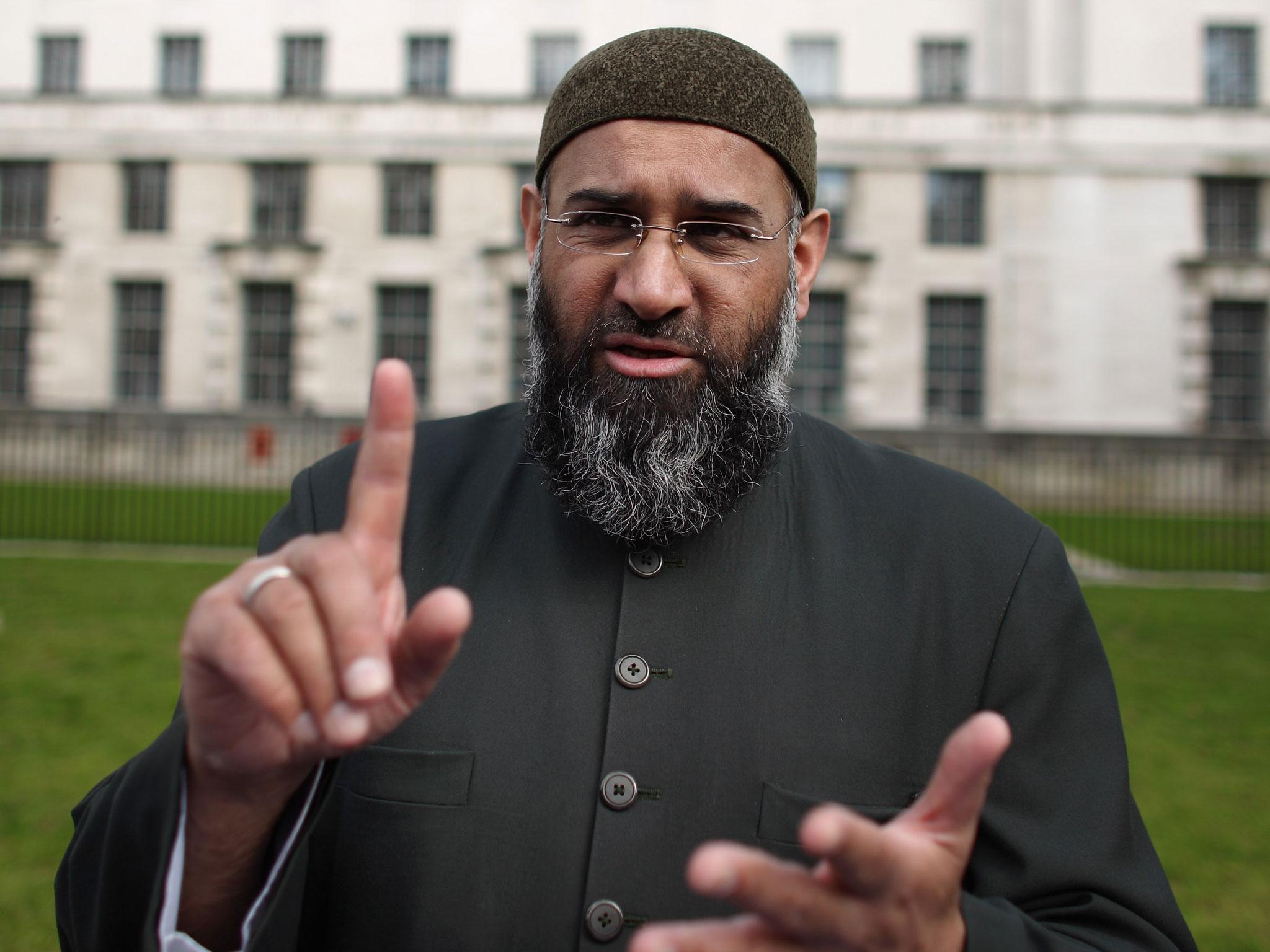As a former extremist who knew Anjem Choudary, I fear for the mentality of British Muslims
Like 33 per cent of British Muslims do, I once supported the idea of a caliphate based upon sharia law. But the debate has now become polarised and poisonous

Your support helps us to tell the story
From reproductive rights to climate change to Big Tech, The Independent is on the ground when the story is developing. Whether it's investigating the financials of Elon Musk's pro-Trump PAC or producing our latest documentary, 'The A Word', which shines a light on the American women fighting for reproductive rights, we know how important it is to parse out the facts from the messaging.
At such a critical moment in US history, we need reporters on the ground. Your donation allows us to keep sending journalists to speak to both sides of the story.
The Independent is trusted by Americans across the entire political spectrum. And unlike many other quality news outlets, we choose not to lock Americans out of our reporting and analysis with paywalls. We believe quality journalism should be available to everyone, paid for by those who can afford it.
Your support makes all the difference.Anjem Choudary, Britain’s loudest Islamist extremist, has finally been remanded in custody, charged under section 12 of the Terrorism Act 2000. The charge is related to him sending messages to his 32,000 followers on Facebook, allegedly encouraging people to join Isis. His guilt or innocence is a matter for the courts. What concerns me here is his trajectory.
I first met Anjem in 1994, when I was 17 years old. We were both students of the Islamist group Hizb ut-Tahrir (HT), which was led in the UK back then by the Syrian firebrand cleric Omar Bakri Muhammad. HT is responsible for first popularising the notion of resurrecting a theocratic caliphate in Muslim-majority countries. At the time, I had been studying at Newham College and was eventually expelled due to my Islamist belligerence. Anjem volunteered as my lawyer, furnishing me with advice on my expulsion.
Later that year, HT organised an international caliphate conference at London’s Wembley Arena, the first and largest of its kind globally. As our fellow HT activists went up and down the country plastering eye-catching bright orange stickers pronouncing The Caliphate - Coming Soon to a Country Near You, Muslims were arriving from all over the world to behold Wembley stadium, packed with 10,000 people cheering in unison for the return of the Caliphate. Those were the days before Isis, even before al-Qaeda, when HT was the most extreme manifestation of this pernicious Islamist ideology in Britain. The British-Muslim scene would never be the same again.
I next met Anjem roughly 15 years later on the BBC Newsnight set with Paxman. By now, I had abandoned my former extremist dogma, and through my organisation Quilliam had set about challenging Islamism as an affront to the civil liberties of the very Muslims it claims to serve. Our BBC debate is most memorable for Anjem’s complicit acceptance that – were a caliphate to be established – I would be executed for being deemed an ‘apostate’. Since this debate, ISIS has indeed declared a caliphate and has left us in no doubt how it would treat dissenters like me.
Despite the fact that up to 1000 British citizens have travelled to join Isis’ medieval theocratic nightmare, and in some cases entire families have up and left, it is true that only a tiny minority of Muslims worldwide support ISIS. But I fear that too many Muslims disagree with Isis’ caliphate, not because it is a caliphate, but because it is not their caliphate. The very idea of resurrecting a theocracy in this day and age has worrying levels of support. According to one survey, 33% of British Muslims supported the notion of creating a worldwide caliphate based on a version of sharia, as law. And if our only criticism of Isis is that its theocracy is not utopian enough, this doesn’t bode well. The cumulative effect of our Islamist preaching in the UK since the early 90s has resulted in polarised communities and unhealthy theocratic aspirations forming a normalised part of life among too many British Muslims.
In fact, the debate has become so skewered towards Islamism that liberal Muslim activists are routinely dismissed as having ‘gone to the other extreme’ to figures such as Anjem. But no, secular liberalism is not the ‘other extreme’ to Islamism - a desire to enforce a version of Islam over society. The other extreme is anti-Muslim bigotry and the desire to ban Islam, which is incidentally also rising across Europe.
I care not to debate which came first, Islamism or anti-Muslim bigotry, suffice to say that both feed into each other symbiotically. Liberalism, on the other hand, means a legal right for one to be religious or not, and an absolute right to express criticism of religiosity, or preach it. So no, liberal Muslims have not gone from 'one extreme to another'. Nor have liberal ex-Muslims for that matter, so long as they remain supportive of individual liberty. But because our vantage point often starts way out there with ISIS, even al-Qaida can perversely appear “moderate” in comparison, as poor liberal Muslims are labelled extreme outliers to any productive debate and the word moderate has become so relative that it’s lost all meaning.
This is how far the Islamic ball has strayed from the democratic court. And when wider society adopts this trope of liberal Muslims being the ‘other extreme’, it shows how low expectations of Muslims have become in the mainstream. How far we all have come since the 90s, and how far we all have to travel – yet - to reach a reasonable centre in this poisonous debate.
Join our commenting forum
Join thought-provoking conversations, follow other Independent readers and see their replies
Comments